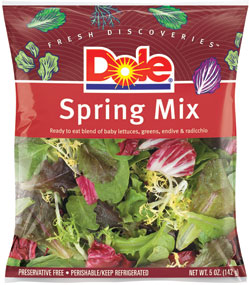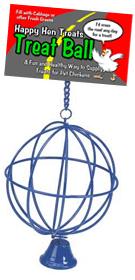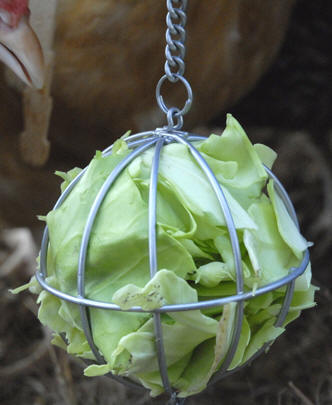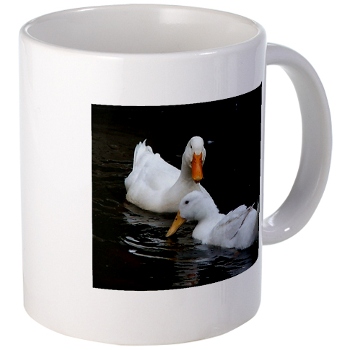We are looking for photos of broken, damaged, misaligned or abnormal goose bills of any kind for an upcoming newsletter issue and for use in "The Ultimate Pet Goose Guidebook."
We are also looking for photos of torn or damaged webbing on goose feet.
These photos will help other goose owners assist their special needs pets. If you or someone you know has a goose with an unusual bill condition, please Email Us a clear and bright photo of their condition. Please be sure to include your full name, the goose's name, your correct email address and your phone number with area code. Thank you!
Deirdre "Dear Heart" Cataracts Update
As mentioned last month, Deirdre has cataracts in her right eye and is blind on that side. We took her to All Friends Animal Hospital to see Dr. Otka for a complete blood panel. We also opted for a baseline x-ray in her left leg because she has a slightly inflamed knee joint. Infections can lead to cataracts, so we needed to determine if her knee is just arthritic or if there is an infection inside. As a preventative measure she began a round of Clindamycin (antibiotics) and Rimadyl (anti-inflammatory) as well as weekly Adequan injections.
Deirdre "Dear Heart" then went to see Dr. Brown (Avian Specialist) and Dr. Aubin (Ophthalmologist) at Ocean State Veterinary Specialists where she had a more thorough and revealing digital x-ray done on her knee to figure out what is truly going on in there--whether it was an injury or an infection.
As it turned out, they discovered that a small piece of bone was missing from her left tibia. This could have been caused by a slip or stumble accident (avulsion of a tendon) or by infection. In order to determine which was the case, we elected for a tap (obtaining a sample from the joint and sending it out for cytology). We were in agreement that this would be too stressful for Deirdre and agreed upon anesthesia. She was given buprenorphine for pain and then masked with sevoflurane gas. Then an endotracheal tube was placed so that the vets could breath for her during the procedure.
While under anesthesia an ophthalmologist checked both of her eyes. She confirmed that Deirdre is blind in her right eye and that cataracts are just beginning to form in her left eye.
As test results later revealed, there was no harmful bacteria in Deirdre's leg, which meant that an infection was not present and did not cause her cataracts. While antibiotics will halt cataract formation brought on by infection, they will be of no use in Deirdre's case.
As Deirdre continues to lose sight in her left eye, she will eventually need cataract surgery in her right eye (blind eye) to remedy her vision. Cataract progression could take a few months or even a year. She will need a follow up check up in 3 months to check her left eye (good eye) again to better estimate the rate of progression.
As Deirdre came out of anesthesia, she was a bit unstable with an erratic heartbeat. Because she did not react well to the buprenorphine, the dosage may need adjusting or she may require different an alternative medication the next time she goes under. Fortunately, she came out just fine after a few minutes and then proceeded to dunk her head and splash in a bowl of water the vets put in front of her.
Cataracts Q & A
When should surgery be performed? Should we wait for cataracts to effect her other eye first, ensuring the need for surgery?
Yes, surgery should not be performed until complete blindness is forthcoming and inevitable. Surgery is then done in the worst of the two eyes (or if money is no option, in both eyes). An ultrasound is performed first and then surgery.
What are the surgical costs?
The ultrasound tends to cost approximately $100 and cataract surgery for one eye will cost approximately $1500. Majestic receives a non-profit discount, so these costs would run a bit higher for pet owners.
What are the odds of cataracts returning in her eye following surgery?
Because Deirdre's cataracts were brought on by age/genetics, their return in the eye post-surgically is highly unlikely and should not be a concern. However, if a bacterial infection had been present (or some other environmental stimuli), the cataracts would likely return following the surgery. This is why it is vital to rule out all other possibilities prior to surgery or the procedure may need to be repeated again down the line.
Are any dietary changes needed? Or can any preventative measures be taken to slow cataract progression in her seeing eye?
Mazuri Waterfowl feed is the best diet choice. Vionate supplement additives is a wise choice, ONLY if you are not feeding Mazuri. While she is on antibiotics be sure she continues with daily doses of Lake's Lacto-Plus probiotics.
What are the surgical risks?
All surgery has its risks. Deirdre is known to be sensitive to buprenorphine (injectible pain medication), so the dosages may need adjusting or an alternative therapy may be needed (like midazolam). Waterfowl also have a diving instinct, enticing them to hold their breath, so she will be masked with sevoflurane gas and then an endotracheal tube will be placed down her throat, so vets can aid in her breathing.
How long does surgery take and when will she be able to come home?
Surgery can take between one and two hours and waterfowl should be kept overnight for observation before going home.
What kind of post-surgical care will be required?
She will be given a non-steroid eye drop medication and may need to stay out of the pond for a few days as she recovers.
Other options:
Pet owners who may not have the means or opt against cataract surgery for their flock members can refer to our June 2008 Newsletter, which includes a helpful article on blindness in waterfowl.
Mini Medi Kits!

We have received multiple requests to make medical kits available for pet ducks and geese. NOW, for a limited time only, we have Mini-Medi Kits on hand!
Each kit comes in a 3" x 2.5" x 2" colored container. Labels under the cover allow you to personalize your Mini-Medi Kit with your own pet's name and emergency vet information.
Each Mini-Medi Kit includes:
1
ml dropper
1 package sterile eye flush, .02 fl oz
1
roll sterile
dressing, 2" x 75"
1 sterile, flex band-aid, 2" (to secure
the dressing)
1 non-stick sterile bandage, 1.5" x 2"
1 package sterile saline solution wipe, 3" x 4"
1 package Bacitracin, .03 oz
1 package of Neosporin, 1/32 oz.
1 teaspoon cornstarch (blood coagulant) in mini-zip bag
1 mini nail file
Having a medical kit on hand in case of emergency is a great way to protect your feathered friend. Keep it in a handy place, so you'll be ready at a moment's notice!
Mini-Medi Kits are great for the traveling duck or goose! Just drop it into your purse or backpack and you're on the go!
Each Mini-Medi Kit is valued at $8.00 + Envelope + Shipping. We are asking for a $15.00 donation for each Mini-Medi Kit.
To get your Mini-Medi Kit, Click to Donate and then type: Mini-Medi Kit in the comments.







